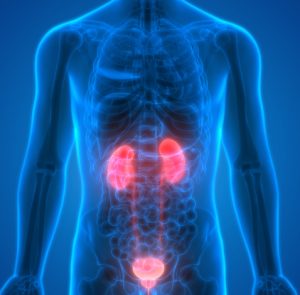
kidney infection back pain
If you suffer from chronic lower back pain, you have probably tried to evaluate and determine all of the causes of your pain. You may have made lists, or answered numerous questions about your active lifestyle and exercise habits. You consume the appropriate amounts of vitamins and yet the pain persists. Your thoughts may easily turn to an internal infection that is not at all related to muscles. You may be experiencing a kidney infection. Kidney infections are often confused for lower back pain because of similar symptoms and placement. How can you tell the difference? Follow our guide below to note some telltale signs to check for a kidney infection.
Article Con’t…
Location of Kidney Infection
Kidney infections typically emanate pain from a certain location in your body. Your kidneys are located toward your back, directly above your hips and to the sides of your spine. If you suffer a direct injury or blunt trauma to this area of your back, you could do significant damage to the kidneys themselves. If struck in this area, the blow is referred to colloquially as a “kidney punch.” Kidney infection pain does often masquerade as back pain, so it is important to know the exact location of kidneys and be able to isolate the pain’s location. An injured back typically does not respond to increased pressure on the kidneys. If your kidney area is extremely sensitive and the entirety of your back is not uncomfortable, that may be an indication of an infection. If you are still unsure, visit your doctor’s office so that they may conduct an X-ray or ultrasound to decipher the origin of your pain, and to search the kidneys for possible stones and blockage.
Duration of Kidney Infection
The onset of pain from a kidney infection is typically quite fast. It typically does not last any longer than a kidney infection lasts. This makes kidney pain “acute.” Typically, a kidney infection is resolved by the passing of a kidney stone or treatment of the infection. As soon as these things happen, the pain disappears completely. If you experience back trauma or a muscle spasm or sprain, the pain typically endures much longer than a kidney infection.
Other Symptoms of Kidney Problems
Kidney infections typically appear with other signs of infection. Painful urination is a common red flag for kidney infection. Fever, chills, and bloody urine are all other signs of unhealthy kidneys. Nausea and pain that emanates throughout the body is another sign of an infection. Kidney infections can also be hereditary, so having a thorough understanding of your personal and family medical history is integral in aiding a proper diagnosis. A history of kidney infections can prove that you are more likely to be experiencing one than a lower back spasm.
Whether you do have a kidney infection or are experiencing lower back pain, it is important to obtain an accurate and immediate diagnosis. Self-diagnosis is difficult, and you are often missing pieces of important information that allows you to make a fully informed decision. The treatment for both lower back pain and kidney infections are very different, and you want to ensure that you are doing the best for your body to return to your typical level of healthiness.


